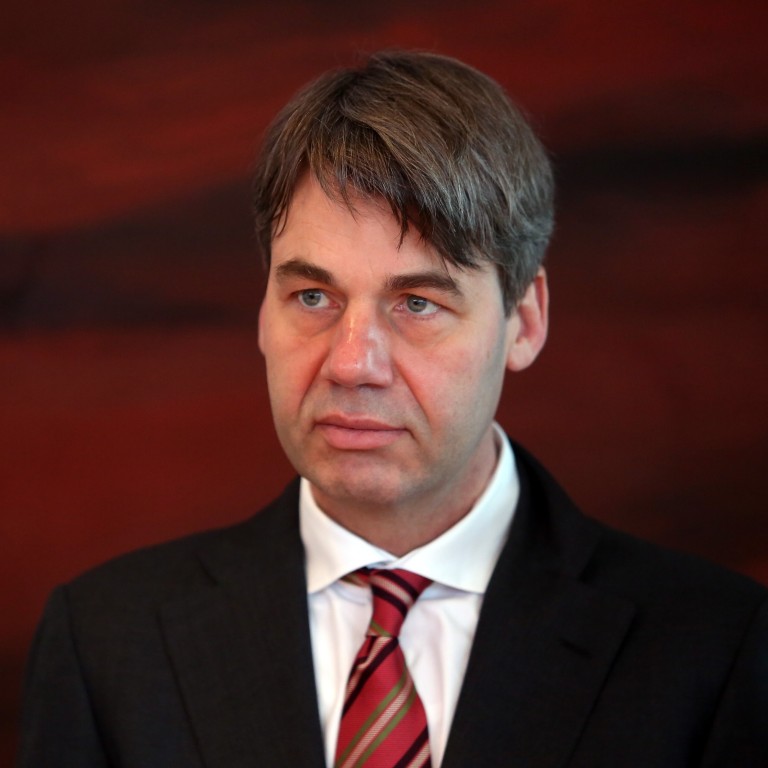
Germany’s ambassador to China Jan Hecker dies suddenly days after taking office
- The 54-year-old was a confidant of outgoing chancellor Angela Merkel and appeared to be in good health on Friday
- Hecker’s appointment was seen as Merkel’s attempt to preserve her policy of engagement with Beijing
“It is with deep sadness and dismay that we learned of the sudden death of the German ambassador to China, Professor Dr Jan Hecker. Our thoughts at this moment are with the family and the people who were close to him,” it said. The brief statement did not elaborate.
Hecker, 54, was married with three children.
He appeared well on Friday night, when he hosted a cultural event at Germany’s embassy in Beijing highlighting the work of German artist Joseph Bueys. He spent the evening talking to many of the guests, including members of the China Academy of Fine Arts and journalists.
Is ‘golden age’ of relations between Berlin and Beijing coming to an end?
China’s foreign ministry offered condolences over Hecker’s death, with spokesman Wang Wenbin saying Hecker had “actively promoted bilateral relations” after taking the new position.
“We are ready to offer as many conveniences as possible for Mr Hecker’s family and the German embassy on follow-up issues,” he said.
The German and European Union flags flew at half mast at the Germany embassy in Beijing on Monday.
Merkel said on Monday that she was “deeply shocked” by Hecker’s death.
“I mourn for a highly valued, long-standing adviser of deep humanity and outstanding expertise,” she said.
Hecker arrived in Beijing on August 1 and presented his credentials to Hong Lei, head of the Chinese foreign ministry’s protocol department, on August 24, after finishing quarantine.
In a statement posted last month by the German embassy on his new role, Hecker said China and Germany shared responsibilities on global issues and should step up dialogue and cooperation.
He had been in charge of coordinating Berlin’s refugee policy from 2015 to 2017.
His advocacy of Merkel’s plans to take in refugees fleeing the Middle East drew him closer into Merkel’s inner circle.
As head of the foreign, security and development policy department at the chancellery, he also served as Merkel’s foreign affairs adviser.
Why Germany’s pragmatic China policy is unlikely to change, post Merkel
Germany will hold elections on September 26 to decide Merkel’s successor and observers have warned of turbulence ahead in China-German relations.
It is not known when Berlin will appoint Hecker’s successor.
Additional reporting by Catherine Wong

